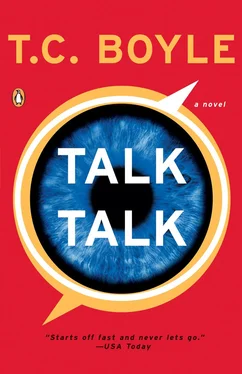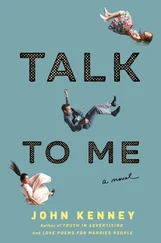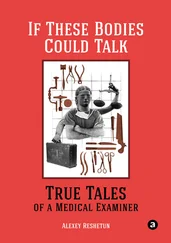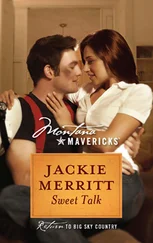It was quarter past eleven when they arrived at the Peterskill station and it must have been a hundred already, or close to it. Bridger wanted to walk to the garage-“It's only like a mile,” he said, and she said, “No, it's more like two, two and a half.” The station was right on the water, but there was no breeze and the sun ricocheted up into their faces. Cars pulled in and out of the lot, moving with slow deliberation, their windshields glazed with light. A knot of people crept past them with their shoulders slumped, borne down under the weight of the heat and trailing suitcases and elastic children. To make it worse, something was rotten, something dead along the shore, and the reek of it was calibrated to a persistent smell of frying from the cafe adjoining the depot. For a long moment they both just stood there glaring at each other until finally she said, “We're taking a cab and I'm not going to argue about it.” And she couldn't help adding a little sting to it. “It's my money, anyway.”
At the garage, everybody was moving in slow motion, from the mechanics to the service manager who went over the bill with them to the secretary who typed it up and had Dana sign here and here and here. She and Bridger made a show of looking over the car, which had just come back from the body shop that very morning, and she wondered about a ripple effect in the paint you could only see in a certain light and from a certain angle, but the service manager assured her that there was nothing wrong and even produced a pristine high-quality cotton-fiber rag and buffed it for her. “You see?” he said. “What'd I tell you?” And while she watched his lips and face and understood what he was saying, she couldn't see any appreciable difference-the ripples were still there. But it was hot. Mortally hot. And she didn't say anything.
Bridger kept telling her to make sure everything felt right with the rear end and she put it in reverse and jerked back a few feet, nearly running over the once-white dog that lay comatose in the shade of the retaining wall, and then she was out on the street, feeling liberated. She had her car back. She was mobile. She could go anywhere she wanted, up the coast to Maine or back across the country to San Roque, or even down to Gallaudet, to show Bridger the campus where she'd spent something like nine years of her life. Or to that street where the moving van was, or had been-Peck Wilson's street.
Bridger poked her. “How does it feel?”
“Fine.” It was a car-how should she know how it felt? It negotiated the bumps and potholes, responded to the pressure of her hands on the wheel, took her where she wanted to go.
“It's not pulling, is it?”
She didn't answer. There was hardly any traffic, a dead town on a dead day-a Saturday-and she was looking for a stretch of road where she could open it up a bit, feel the breeze tear through the windows and take hold of her hair, but there were just city streets and hills and stoplights. “You feel like lunch?” she asked, turning to him. “Before we-before we take our little walk? Our little stroll? Hmm? Lunch? Does that sound good?”
They found a diner in the middle of town, a real authentic one-“echt,” wasn't that the word? — fashioned from an old railway car, and sat there in the stultifying heat with their clothes sticking to the leather-backed seats while they ordered sandwiches they barely touched and downed glass after glass of pre-sweetened iced tea. Both doors were open and an old upright fan was going in the corner. There were flies everywhere, legions of them gang-piling on the window ledges and drifting haplessly in and out the doors. She'd ordered tuna on rye, not the best choice for a tropical day in a place where the refrigeration might be suspect, which was why Bridger had said, “I'm sticking with the bacon on a hard roll,” but it wasn't bad-it was good, even. And when the waitress, big in the hips, cheery and efficient, brought her face into view and asked, “What's the matter, honey, is everything all right or is it just the heat?” she smiled and said, “lust the heat.”
In fact, she was feeling good. Feeling lucky. This was the day, she knew it, and in the cramped cubicle of the ladies' that was no bigger than a shower stall, she reapplied her lipstick in the scratched-over mirror and gave herself a big relaxed smile, a beautiful smile, the smile her mother always said would be the making of her-“With that smile,” she'd say, “with that face, you'll go anywhere,” as if a smile could make up for her fried cochlea or disarm the stranger who looked at her as if she'd been just let out of the zoo. But here it was, her beautiful smile, consummate and full-lipped, staring back at her from the mirror, the very smile she was going to lay on Peck Wilson when they were leading him away in chains.
They didn't want to risk driving by the house, so she took a parallel street and found a spot to park under a big over-spreading maple in a long row of them. Bridger climbed out of the car and stretched as if they'd been driving for hours instead of minutes. He was wearing a T-shirt from one of the Kade films, red on black, featuring the hero's outsized head in some sort of leather helmet, and though The Kade was meant to look menacing she found the representation faintly ridiculous. He looked constipated. Looked weak and old and at the mercy of his agents. “Nice T-shirt,” she said. “Did I tell you how much I love it?”
He grinned from over the roof of the car. “Yeah,” he said. “You did. But The Kade is my man, you know that. If it weren't for him Radko'd probably be out of business by now.”
“I hear you,” she said, and they both laughed. She was wearing a T-shirt herself, also black, emblazoned with the name of a band she liked. Or would like to like. And a pair of shorts, loose-fit but not nearly as baggy as Bridger's. Despite the heat she had on her running shoes-or better yet, walking shoes. Her first impulse that morning was to go with something open-toed, sandals, flip-flops, but she'd caught herself: you never knew what the day would bring or just how involved this little stroll was going to turn out to be. The thought of it, coming back to her now as she tucked her purse under the seat and locked the car door, made her stomach clench. “You have your cell?” she asked.
Bridger whipped it from his pocket and held it aloft.
“Okay,” she said, “then I guess we're ready.”
The houses here weren't as dominating as the peeling Victorians closer to the center of town, but they seemed to be from the same general period-they were just scaled down, as if the people with more modest incomes had wound up here while the brewers and factory owners and bankers expressed themselves more grandly. And conveniently. Or maybe she was all wrong. She didn't know much about architecture, and she would have been the first to admit it. But certainly generations upon generations had lived here, unlike in California, and she could see that reflected in the grim stature of most of the houses, gray and nondescript but still standing after all these years.
They turned right at the corner and there, at the far end of the block, was Peck Wilson's street-what was it called again? Division? Division Street? That was fitting, wasn't it? Or how about Jailhouse Road? Thieves' Alley? Hadn't she seen a street on the map called Gallows Hill Road? That's where he should have lived, the son of a bitch, Gallows Hill Road. She was going to mention that to Bridger, lighten his mood, but she saw that his eyes were fixed on the corner ahead and he'd unconsciously quickened his stride. She skipped a couple of steps to catch up to him, then took hold of his hand and squeezed it hard and moved in to match him stride for stride.
A car went up the street and turned at the corner, leaving a taint of exhaust heavy on the air. Two kids on bicycles chased each other up the opposite sidewalk. The leaves of the trees curled in on themselves. And then they were on the street itself, Peck Wilson's street-an abrupt right at the corner and there was the house where the U-Haul had been parked, and there, across the street and half a dozen houses down, partially obscured by the shrubs and trees and the line of cars parked along the curb, was the house they'd come to visit. She felt Bridger tense at her side, both of them straining to see as they strolled hand in hand up the walk, each step bringing them closer. Bridger stripped off his sunglasses-Peck Wilson's sunglasses-as if to see better. They were directly across from the house now, trying to act casual, but there was nothing to see as far as she could tell.
Читать дальше












